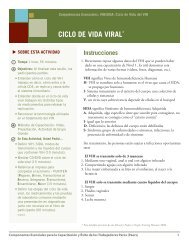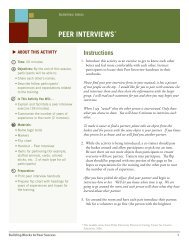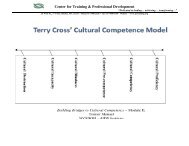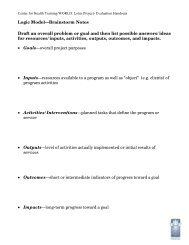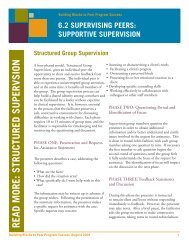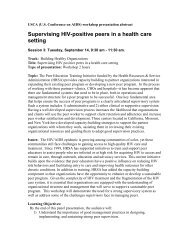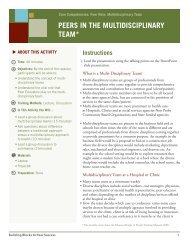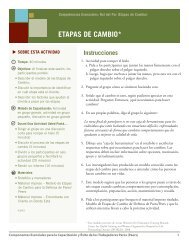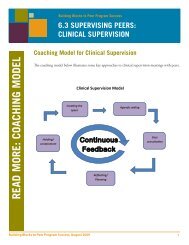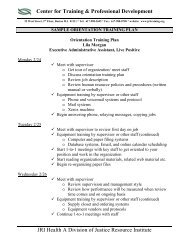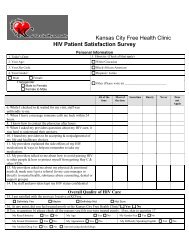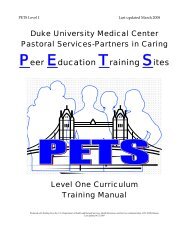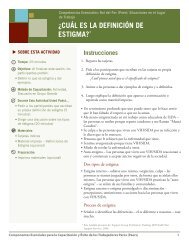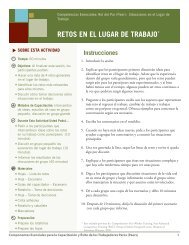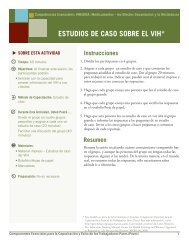Communication Skills - Peer Education & Evaluation Resource Center
Communication Skills - Peer Education & Evaluation Resource Center
Communication Skills - Peer Education & Evaluation Resource Center
You also want an ePaper? Increase the reach of your titles
YUMPU automatically turns print PDFs into web optimized ePapers that Google loves.
COMMUNICATION SKILLS<br />
ABOUT THIS ACTIVITY (CONT.)<br />
Preparation:<br />
• Make copies of handouts.<br />
• Write the following skills and their<br />
definitions on flipchart paper. Power<br />
point can also be used:<br />
<strong>Communication</strong> <strong>Skills</strong>:<br />
Affirming<br />
Open ended questions<br />
Active Listening<br />
Nonverbal Messages<br />
Express Thoughts and Feelings<br />
Communicate Without Making Other<br />
Feel “Wrong”<br />
• Go to the Case Study section of<br />
the Toolkit and print out copies of<br />
Barbara’s case study.<br />
5. Refer to the handout on <strong>Communication</strong> <strong>Skills</strong>. Tell the group<br />
we’re going to look at 6 specific communication skills that we<br />
can use in any situation, with anyone.<br />
6. As we go along, encourage the participants to complete their<br />
worksheet.<br />
7. The first communication skill is Affirming.<br />
8. Ask: what does “affirming” mean Allow 1-2 responses.<br />
9. Affirming is a positive confirmation. When you affirm<br />
something that someone has done or said, you are providing<br />
them with support and encouragement. This is unbelievably<br />
simple, yet most of us forget to do it!<br />
10. Ask: What are some examples of affirming statements Allow 3-4<br />
responses and write on flipchart.<br />
• “Tat’s good.”<br />
• “I’m glad you asked that.”<br />
• “You’ve come to the right place.”<br />
• “Tat’s a great question.”<br />
• “You’re on the right track.”<br />
• “You really seem to have given this a lot of thought.”<br />
11. The second skill is Open-ended Questions. Ask: What’s an<br />
open-ended question<br />
12. Open-ended questions are questions that can’t be answered by “yes”<br />
or “no.” Why are they useful We get much more information<br />
from people; participants “own” the information they’re<br />
learning; powerful teaching tool.<br />
13. Ask: What are some examples of open-ended questions that you<br />
would use when getting to know someone and where they come<br />
from As participants come up with questions, if they ask a<br />
closed question, simply answer “yes” or “no” and move on.<br />
Building Blocks to <strong>Peer</strong> Success 2



